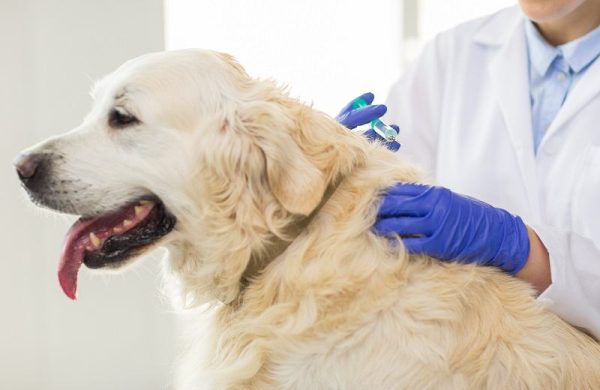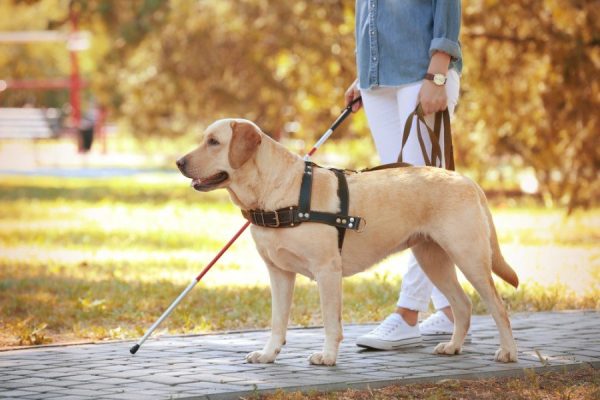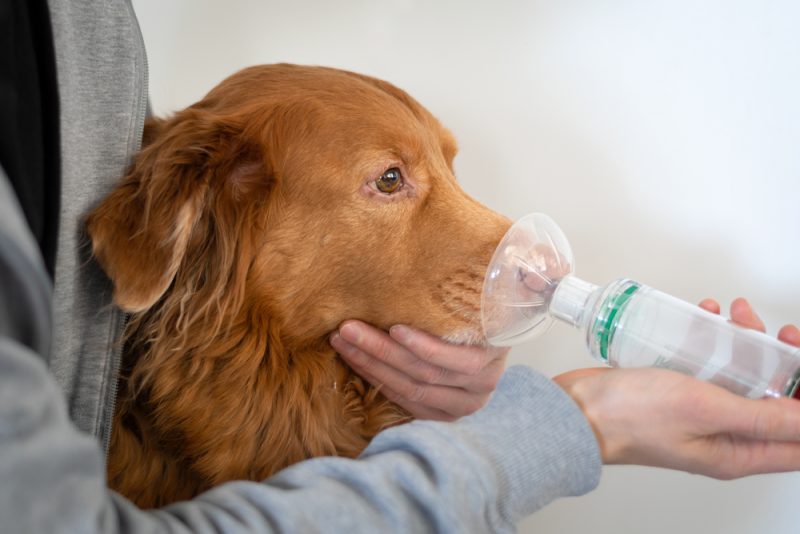As pet owners, we all want our dogs to live long and healthy lives without major medical issues. Unfortunately, almost every dog will deal with at least one health problem during their lifetime. In this article, you’ll learn about the 10 most common dog health problems presented to first-opinion veterinarians, as discovered by a large study by the Royal Veterinary College, London.1 You’ll find out signs to look out for and tips to help prevent them if possible.

The 10 Most Common Dog Health Problems
1. Gum Disease
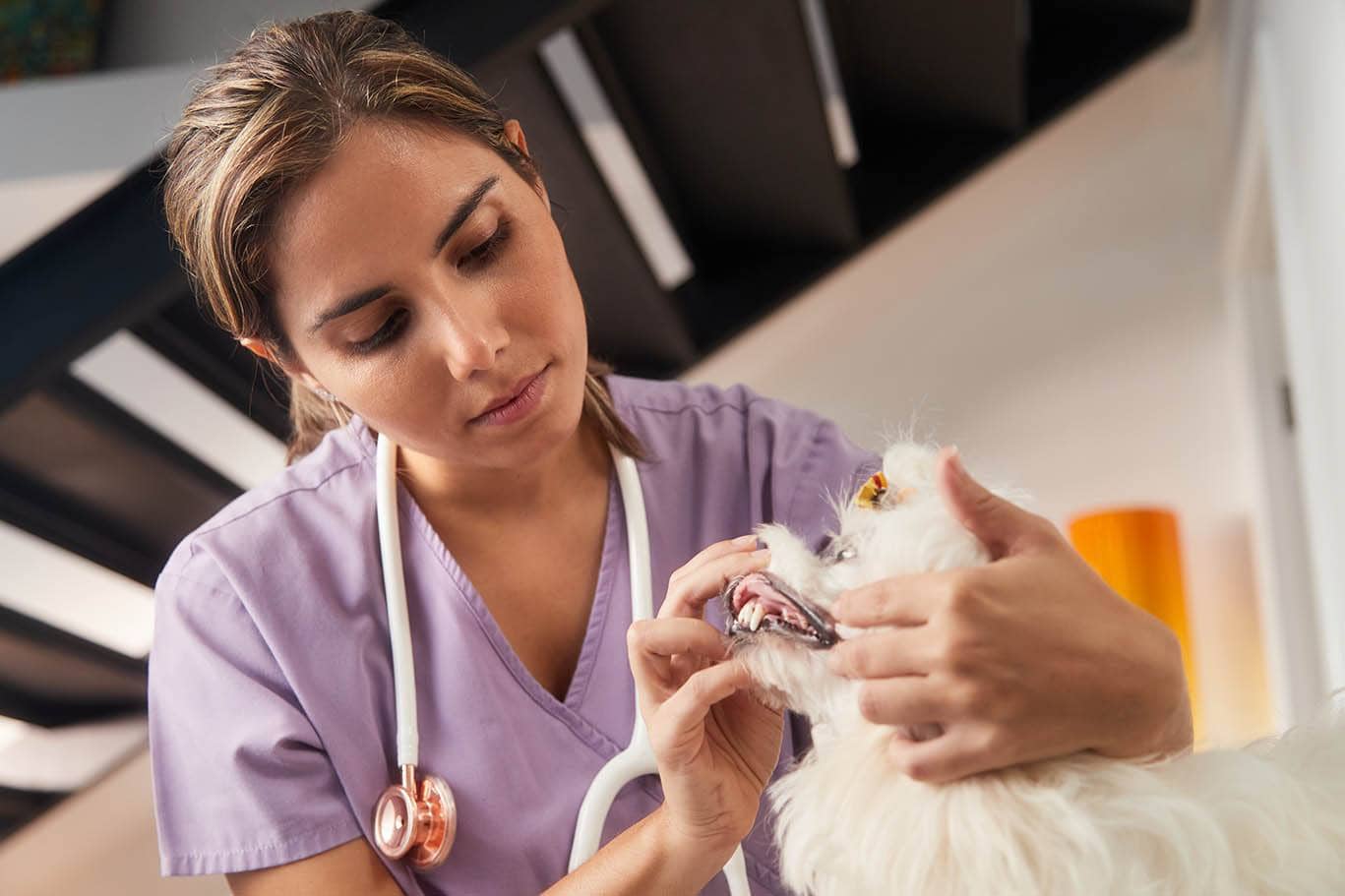
- Body system affected: Digestive, other systems
- Lifestages affected: Adult, senior
Over 80% of dogs over the age of 3 show some signs of active dental disease, making it the most common canine health problem. Dental disease occurs when bacteria gather on your dog’s teeth, forming plaque that then hardens into tartar.
Over time, tartar will lead to the accumulation of more bacteria, which will cause gingivitis and inflammation of other periodontal structures (periodontitis), tooth loss, and pain. Bacteria from the mouth can also travel to other organs, e.g., the heart, via the bloodstream, potentially leading to more serious infections.
Signs of dental disease in dogs include trouble eating, dropping food, trouble swallowing, drooling, pawing at the mouth, and jaw chattering. Regular oral care, such as daily brushing, can prevent or slow dental disease in dogs. Dogs with dental disease will need professional cleaning and possibly tooth extractions.
2. Ear Infection
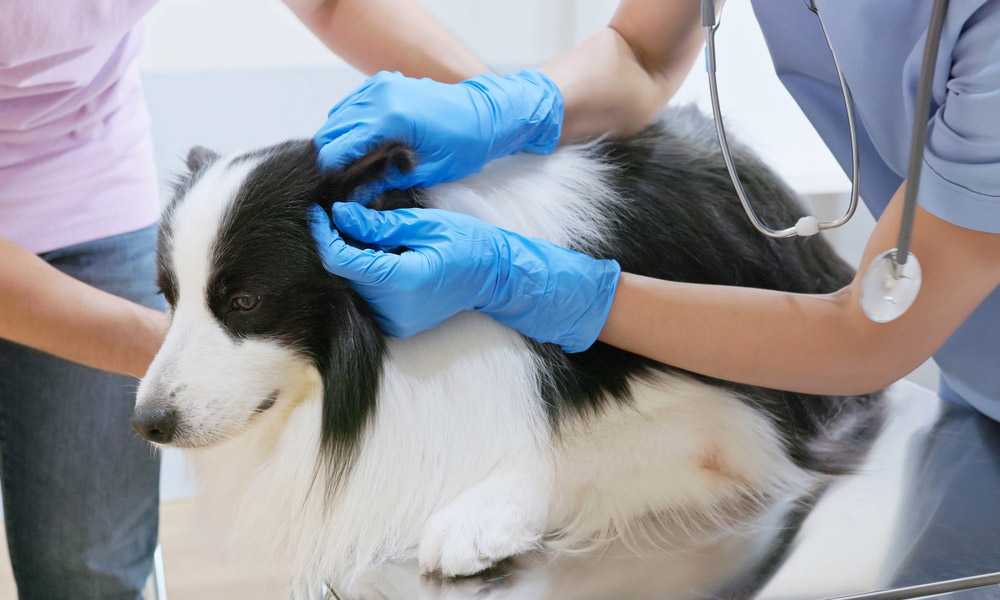
- Body system affected: Skin
- Lifestages affected: Puppy, adult, senior
Outer ear infections (Otitis externa) can occur in any age dog and are typically more common in dogs with folded or floppy ears than those with upright ones, although any dog can suffer from this condition. Dogs who spend a lot of time swimming are also more likely to get ear infections. They also commonly occur as a secondary problem in dogs with food or environmental allergies.
Signs of ear infections include shaking the head, scratching the ears, redness, discharge, and a foul odor from the ears. Ear infections are typically diagnosed by a veterinary exam and by checking a sample of ear discharge under a microscope. Treatment usually involves ear cleaning, medication, and pain medications. Regularly checking and cleaning your dog’s ears may help prevent ear infections.
3. Obesity
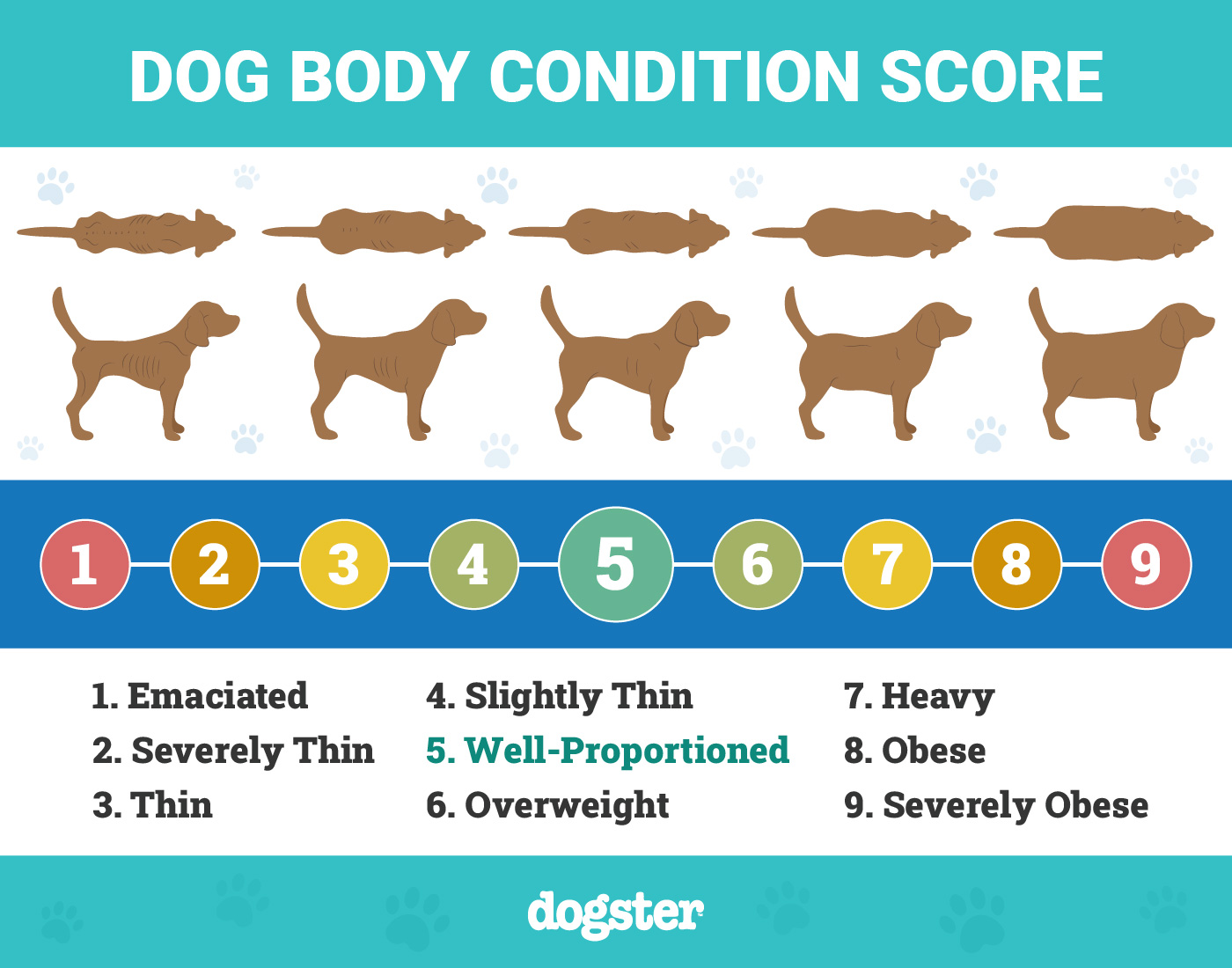
- Body system affected: All
- Lifestages affected: Puppy, adult, senior
Obesity is not only one of the most common dog health problems but one of the most preventable. Dogs who are chronically overweight are at higher risk of multiple medical conditions, including heart disease, joint problems, and cancer.
To prevent obesity, ensure your dog gets regular exercise and eats the correct number of calories daily. Check your dog’s food for the number of calories per cup and determine their daily amount accordingly. Be sure to subtract any treats from the total as well. Your dog’s recommended daily calorie intake will vary by age, activity level, and breed, but you can ask your vet to help you calculate the right number.
If you need to speak with a vet but can't get to one, head over to PangoVet. It's our online service where you can talk to a vet online and get the personalized advice you need for your pet — all at an affordable price!

4. Overgrown nails
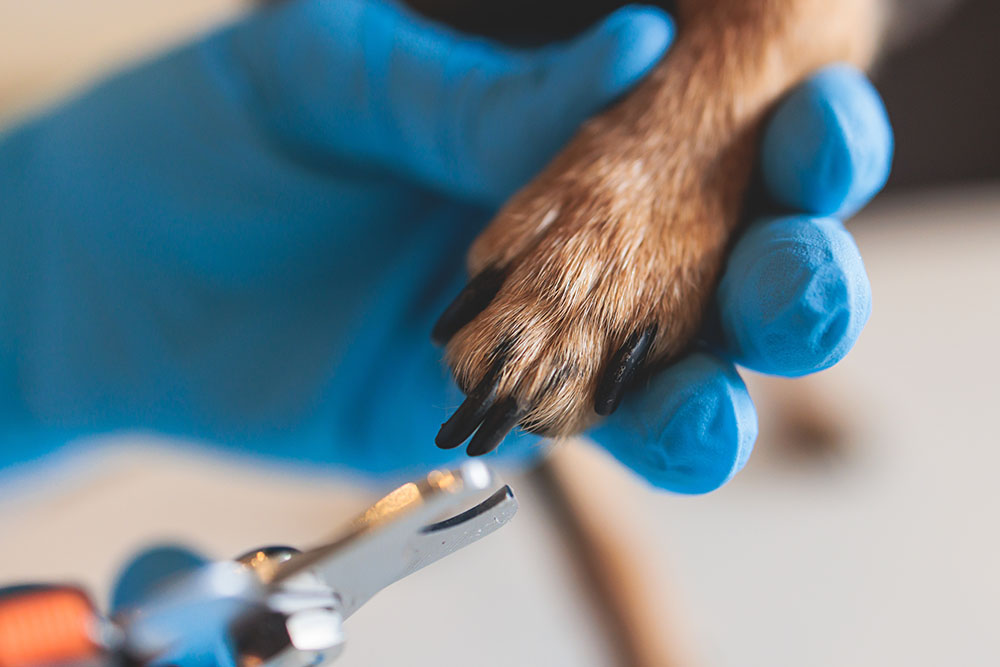
- Body system affected: Skin
- Lifestages affected: Any life stage but most common in senior dogs
Overgrown nails are the fourth most common condition seen in first-opinion veterinary practice. Allowing nails to become overgrown can cause severe discomfort for your pet, and increases the likelihood of a nail fracture and possible infection occurring. In older dogs or those suffering from mobility issues, their nails may not be worn down so much as they won’t be walking very far on hard ground. It is vital that owners check their dog’s feet at least weekly to ensure that all nails are of the correct length and that none of them are growing in a strange direction.
Most veterinary practices offer a nail-clipping service for clients who aren’t comfortable clipping their dog’s nails at home.
5. Anal Sac Impaction
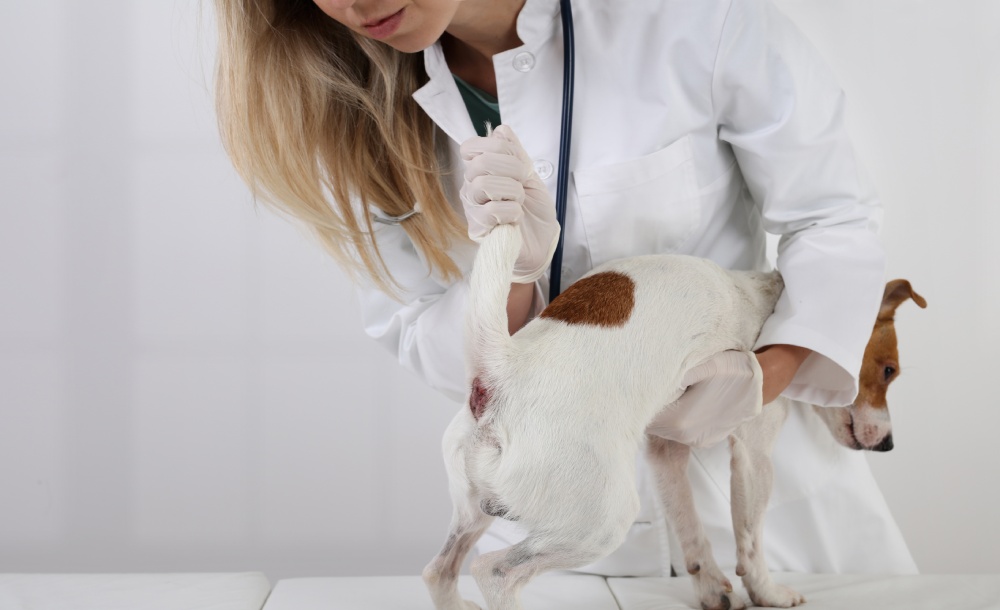
- Body system affected: Skin
- Lifestages affected: Any
Dogs have two small anal sacs that sit just inside their rectum. These glands have the job of secreting a marking scent on the feces as they pass out of the dog. If a dog has had diarrhea or allergies, or its anal sacs have an abnormally narrow opening, they may not secrete their fluid when the dog has a bowel movement. This means that the liquid within the anal sacs can become firm and impacted. Once this occurs, they will need to be manually expressed by your veterinarian.
If you notice your dog is licking their bottom more or is scooting their back end along the floor, it may well be that their anal sacs are causing them discomfort. It is worth seeking veterinary attention as soon as you can because, if left alone, these impactions can develop into anal sac abscesses, which can be more difficult to treat.
6. Diarrhea

- Body system affected: Skin
- Lifestages affected: Puppy, adult, senior
Diarrhea is a common, non-specific digestive sign. It can indicate dietary indiscretion, for example, a dog that has managed to scavenge some remains of last night’s dinner or more serious conditions like pancreatitis or inflammatory bowel disease. Puppies with diarrhea may have internal parasites or an infectious disease.
If your dog has diarrhea, note the color, consistency, and frequency to tell your veterinarian. Treatment for diarrhea will depend on the eventual diagnosis. Your dog may need probiotics, anti-diarrhea medications, dewormers, or further testing. Diarrhea can’t always be prevented, but you can usually help mild cases of diarrhea by offering your dog small amounts of bland food such as boiled chicken and rice.
7. Vomiting

- Body system affected: Digestive
- Lifestages affected: Puppy, adult, senior
One of the reasons that vomiting is such a common dog health problem is that it is considered a non-specific medical sign. This means that many conditions count vomiting as one of their signs. When your dog vomits, it could mean a vast number of things, from eating something that didn’t agree with them to suffering from kidney disease.
The age of the dog may make some causes of vomiting more or less likely. Puppies who vomit may be suffering from a gastrointestinal foreign body or an infectious disease like parvovirus, while senior dogs are more likely to have cancer or kidney issues.
It’s vital to contact your veterinarian if your dog is vomiting. Diagnosis and treatment will depend on the underlying cause of the vomiting. Generally, you can’t do much to prevent vomiting other than keep your dog from ingesting foreign objects or trash and avoid changing their food too quickly.
8 & 9. Lameness and Osteoarthritis
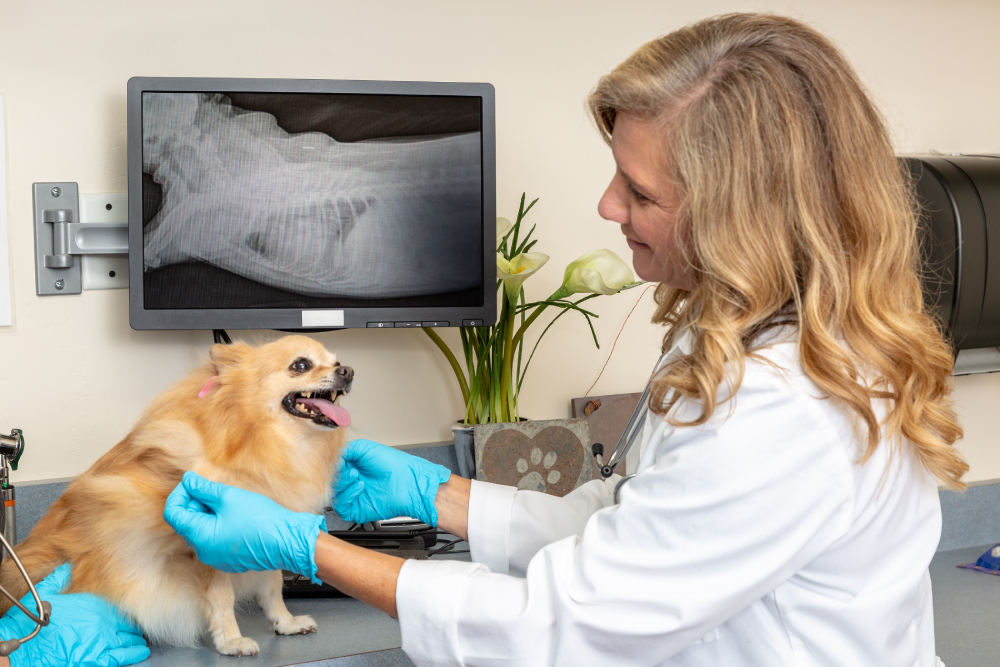
- Body system affected: Musculoskeletal
- Lifestages affected: Adult, senior
Although these conditions are numbers 8 and 9, we’ve grouped them together here. Lameness is commonly seen and can affect dogs of any age. In a puppy, lameness may be more likely due to overexercising or injury, whereas lameness in an older dog is more likely to be caused by osteoarthritis. Osteoarthritis is inflammation of the joint or joints and generally develops with age. Signs include lameness and reluctance to exercise, jump, or climb stairs.
Several factors can put a dog at higher risk of developing joint disease. Overweight dogs put more strain on their joints and are more likely to develop arthritis. Dogs with inherited joint conditions like hip dysplasia or luxating patella are also more likely to develop arthritis.
These dogs may get joint disease even at an early age. Finally, dogs who’ve suffered previous joint injuries, like a cruciate ligament tear, are predisposed to developing arthritis. Joint disease is usually diagnosed by physical exam and X-rays.
Generally, the treatment involves pain medication, weight loss, joint supplements, and sometimes physical therapy such as hydrotherapy.
Dogs at higher risk of arthritis may benefit from being on preventative joint supplements. However, you can talk to your vet about what else can be done to prevent joint disease.
10. Aggression

- Lifestages affected: Adult
This may come as a surprise to some, but the tenth most common reason for primary vets to see dogs is for aggression. Male dogs tend to be diagnosed with aggression more commonly than females, and it is most common to see dogs presented to the veterinarian when they are adults.
Aggressive behavior can have a wide range of causes, from lack of socialization to traumatic early experiences and pain. Your vet will perform a thorough clinical examination of your dog (if possible) in order to rule out a painful cause for the aggression (such as a painful back or joint) and may then refer you to a specialist canine behaviorist. Medications can be prescribed to help your dog’s aggression while you are getting help from a specialist.

Conclusion
Although we discussed 10 common health problems that may impact your dog, many others exist. Although you can’t avoid every medical issue, regular checkups, brushing your dog’s teeth, keeping your dog at a good weight, and following your vet’s recommendations for preventative care will all help keep your dog as healthy as possible.
If you notice any concerning signs, don’t delay seeking veterinary care. Catching most health issues early generally results in more success with the treatment and recovery.
Featured Image Credit: Wasan Tita, Shutterstock



